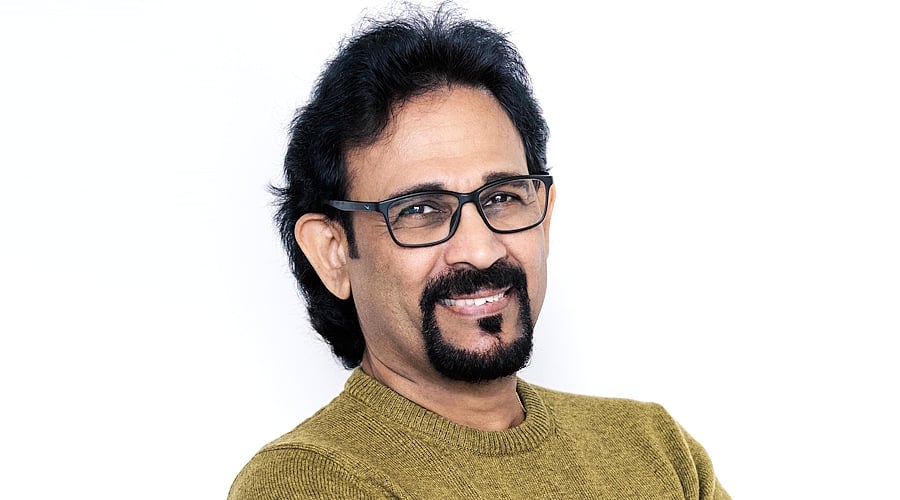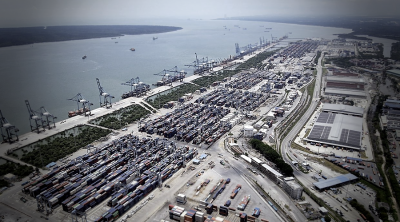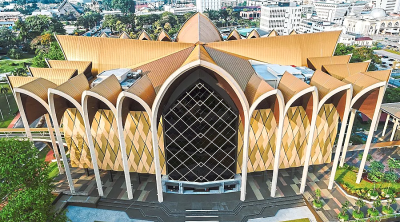
We had decided on a simple joyful birthday staycation treat for my wife along with our daughter and baby grandson at a well-known hotel strategically located near the Kuala Lumpur Railway Station; with visions of a relaxing weekend filled with warmth and Malaysian hospitality.
We arrived right on time, bags in hand, hearts light with excitement.
Sadly, the experience that unfolded revealed deeper cracks in an industry that was once Malaysia’s pride.
A warm room but cold welcome
Upon arrival, I was surprised and utterly disappointed that there was no hotel staff to assist us with our luggage. No porter or bell-boy in sight, and no trolley on hand for our convenience.
We had to carry our luggage up to our rooms ourselves, and although this may have been deemed a small inconvenience, it reflected something larger—a missing touch of care.
The joy of pleasantly settling into cozy, comfortable bedrooms was shortlived with leaking showerheads in both our rooms and our daughter’s bathrooms.
It is one thing to have a minor defect, but when two rooms experience the same issue, it speaks volumes about the hotel’s maintenance standards.
A missed moment of celebration
Next morning, I approached the front desk and asked if the hotel could offer anything special to make my wife’s birthday.
My expectation of a modest surprise—perhaps a complimentary slice of cake, flowers, or a note from the hotel—was doused with a curt response of “Yes, sir, we have packages available, but you’ll have to pay.”
I was taken aback; the essence of hospitality seemed completely lost. Of course, I was ready to pay; this wasn’t about freebies; it was about connection, about showing that the guest’s joy mattered.
To this hotel, my wife’s happiness on her special day was three balloons and a dried slice of chocolate cake. It seemed as if the hotel’s message to the guest was, “It’s your birthday, not ours; here’s your cake, eat it and get lost.”
Disconnected leadership
Still, I chose to share my feedback constructively. I spoke with the Duty Manager, who promised to arrange a meeting with the Director of Operations.
No one showed up. I then asked if I could email the General Manager, but the staff hesitated to provide the contact details. The silence that followed spoke louder than any apology could.
To be clear, my intention is not to discredit this hotel. However, it is sad that a building with beautiful architecture, elegant décor, and with potential of being at world-class level, largely displays a clear disconnection between its impressive infrastructure and the people who run the establishment.
The vanishing Malaysian presence
Throughout my stay, it struck me that every staff member I encountered, from the front desk to the restaurant, and to the housekeeping departments, was a foreign worker.
Polite, yes; hard-working, certainly, but the missing point was obvious—that genuine Malaysian touch that once defined our tourism brand.
Where are the Malaysians who once proudly carried the torch of our hotel industry? The warm smiles, the natural curiosity, the “Selamat Datang” that came straight from the heart—these seem to have faded and slowly vanished.
While I understand the challenges of hiring local workers, we cannot let our hospitality industry lose its soul.
Malaysians possess an innate ability to connect with people; to make guests feel at home, share stories, celebrate diversity. It is what makes our tourism unique.
Losing that will only result in us becoming just another destination, not the destination.
Revolutionizing the workforce: Lessons from Singapore and beyond
In this context, Malaysia has an untapped asset: our retirees. According to recent figures, more than 3.9 million Malaysians are aged 60 and above, representing approximately 11.6 percent of our population.
The country is rapidly becoming an aged nation, with over 10 percent already aged 60+ and projections pointing to 15 percent by perhaps 2030.
By contrast, our neighbor Singapore has made significant strides in engaging senior citizens in their workforce: in 2022, the employment rate for workers aged 55-64 rose to around 70.6 percent, whilst for those aged 65-69, the figure was 47.5 percent.
What Singapore shows us is that seniors can serve as the eyes and ears of public spaces, from hotels and eateries, to airports and transport hubs.
They bring attentiveness, life experiences, and a vested interest in service quality. Their presence would elevate the guests’ experience and safeguard our national hospitality standard.
If for every five foreign workers, a Malaysian retiree or senior citizen was brought onboard for guest-relation roles—as a greeter or an usher, a doorman or bell-boy, a concierge facilitator or housekeeping mentor—their deep understanding of local culture, language and hospitality ethos would complement the foreign workforce and re-embed the “Malaysian from the Heart” service narrative.
Raising the bar before VMY 26
Visit Malaysia Year 2026 (VMY26) is fast approaching. It presents an enormous opportunity to revive tourism and showcase Malaysia’s warmth, beauty, and cultural richness to the world. However, to seize such an opportunity, our hotel industry must step up.
1. Strengthen maintenance and housekeeping standards: Hotels must ensure their rooms, bathrooms, lifts, and car parks meet impeccable standards. Regular audits by trained local inspectors can help maintain consistency. Leaking showerheads, stained carpets, or poorly lit corridors are not minor oversights—they are silent reputation killers.
2. Reinvest in human capital & inclusive workforce: Training should go beyond technical skills. Staff must learn the art of service with heart. Encourage emotional intelligence, cultural understanding, and proactive problem-solving. A guest’s complaint is not a burden—it is an opportunity to build loyalty. Also, consider a structured policy to recruit seniors/retirees in roles where their life experience can shine.
3. Restore the Malaysian hospitality identity: Tourists come here for more than scenic views or shopping. They come for our warmth, our food, our smiles. Let’s bring back the Malaysian presence in our hotels; from the concierge to the restaurant servers, they are our ambassadors—the first and last impression of our country.
4. Leadership accountability: Hotel management must foster a culture of openness. Feedback from guests should be valued, not ignored. When leaders remain inaccessible, it sends a dangerous signal: that customer voices do not matter. The best hotels in the world aren’t those without mistakes—they are those that handle them gracefully.
5. Partnership between industry and government: To achieve VMY26’s goals, collaboration is essential. The Ministry of Tourism, hotel associations, and hospitality training institutions should align on national service standards, certification systems, senior-citizen employment incentives, and local employment ratios to ensure the highest standards are achieved and maintained.
The road to redemption
Malaysia’s hospitality industry stands at a crossroads. The physical infrastructure—hotels, resorts, airports—is world-class.
Sadly, it is the soul of our service that needs much rejuvenation.
We cannot rely solely on foreign labor or modern facilities; we need Malaysians—trained, motivated, and proud—to lead the frontlines of our tourism industry again.
Retirees and senior citizens should not be considered as “past their prime”—they are harvested experience, untapped potential, and national heritage.
VMY26 is more than just a campaign. It is a promise to the world and to ourselves that Malaysia remains the Truly Asia that travelers fell in love with.
To fulfil that promise, we must restore not just our hotels’ shine, but our spirit of hospitality.
Let this not be another missed opportunity.
Let it be the moment we rediscover the heart of what makes Malaysia special—our people, our fellow Malaysians.

(Ravindran Raman Kutty is a senior communications and public relations professional with extensive experience across Malaysia, Fiji, the UK and Australia. Passionate about strategic communications, sustainability, and community engagement, Ravindran writes regularly to share insights and foster informed dialogue on important social and environmental issues. Through thoughtful analysis and storytelling, he aims to contribute meaningfully to public discourse and inspire positive change.)
ADVERTISEMENT
ADVERTISEMENT








































